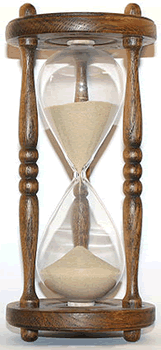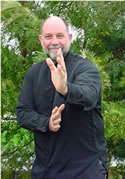Transliterations by Bob O'Hearn from Paradise, California
By Seng T'san
Satisfying the deepest longing
at the heart isn’t difficult –
just practice letting go
of grasping and avoiding,
and recognize what remains
as your own native happiness.
When we cling to differences,
heart and mind conflict.
If you want to end the inner war,
don’t be for or against.
The argument with oneself
is the primal disease of the
mind.
Relentless suffering.
Not awake to the deeper
principle,
we persist in disturbing our
natural harmony.
Luminous spaciousness, empty and
full --
that's the mind of least
resistance,
the mind of carefree humility.
Habitually craving and avoiding,
we can’t allow mind’s true
nature,
Clear Light, to reveal itself.
Don’t get bewildered by things;
don’t lose yourself in what
changes.
Be at peace in the immaculate
transparency of all arising;
stop trying to be
a knower.
When we don’t live as Tao Itself,
boundless and non-dwelling,
we part ways with our natural
happiness,
confusing ourselves with borrowed
schemes and dogmas, claims
and superstitions.
Believing the world is real,
we're
ignorant of its deeper reality.
Denying the world is real, we're
blind to the selfless innocence
of all forthcoming things.
Open those eyes!
The more we think about it all,
the farther we are from the
truth.
Dropping off both body and mind,
there’s nowhere we can’t go.
Returning to the heart, we’re
welcomed home;
chasing appearances,we lose their
source.
In one moment of unbiased clear
seeing,
we can transcend both form and
emptiness.
Don’t keep searching for truth;
just let go of all opinions,
and truth will find you.
For the mind surrendered,
all selfishness dissolves.
Free of doubt, fearless in love,
we can trust the universe
completely.
Nothing to gain, nothing
to lose - all is empty,
brilliant, perfect
in itself.
In the world of all-as-is,
there is no self, no non-self.
If we want to speak plainly,
the best we can point to is
"not-two."
At the heart of surrender
there’s no separation,
nothing to add
nor subtract:
no lost nor found,
no bondage nor liberation,
no here nor there,
no this nor that --
the awakened awaken
to this truth, as
this truth.
The tiny is as large as the vast
when conceptual distinctions vanish.
The vast is as small as the tiny,
when mental limitations dissolve.
Being is an expression of
non-being,
non-being is no different from
being.
Until we understand this truth,
we won’t see anything clearly.
One is all, all is one --
when this becomes self-evident,
what interest in stages or
categories
can occupy one's attention any
longer?
Preachers become obsolete.
The mind of absolute trust is
beyond
all thought, all striving, all
motive
to know, to cling, or to turn away.
It is non-dwelling mind,
perfectly at home, at peace,
for within it there is no past,
no future, no present --
only what is.








